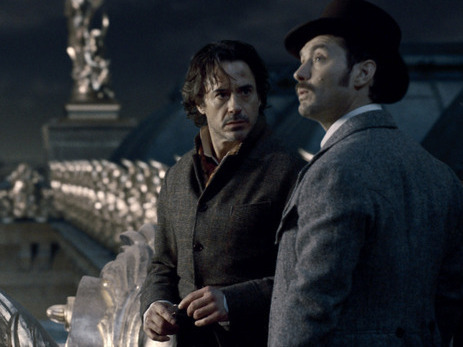

Learning the conductorly art of shaping music with your body.
- How exactly does a conductor conduct? New York magazine critic Justin Davidson steps on the podium to find out after an intensive fall of coaching by Alan Gilbert and James Ross who co-lead Juilliard's conducting program. "Lifting the baton feels a little like getting ready to push off from the top of a ski slope, in that I'll move in the right direction whatever I do, and also because fear will cause disaster. Neither fact is comforting."
- Claudio Del Monaco, an occasional opera director and son of tenor Mario Del Monaco, is now in stable condition with damage to his heart, liver and diaphragm after his third wife, Daniela Hermann Werner, allegedly attacked him with a bread knife. "My wife stabbed me. She's crazy," he told emergency personnel. (link in Italian)
- What happens when a soloist has to call in sick? Often, an "all-points bulletin goes out to artists' management companies and to orchestra administrators." To this end, legendary Juilliard piano pedagogue Veda Kaplinsky tells her students to have lesser-known concertos in their repertoire to increase their chances of getting summoned from the bullpen.
- Bassoonists, rejoice: A New York musicologist has discovered four lost measures of the bassoon part in Ravel's ballet Ma Mere l'Oye. Apparently, there was an error that went undetected for 100 years.
- There's only one city in America that still employs a civic organist: San Diego. This year, citizens rose up to save her job.
- Remember how last week Opera Boston closed its doors very suddenly? Well, it seems that at least six of the company's 17 board members were not present at the meeting in which a vote was taken to disband the company.
- Says The Boston Globe: "It's both a strange and sad outcome ... the roughly $750,000 deficit and liabilities weighing down the company struck few experts as insurmountable in a city of Boston's size and cultural tastes. While some of the opera company's powerful board members may have grown tired of their commitments, they could have found a way to exit the stage without dismantling the company." (The Globe also says Boston mayor Tom Menino was "shocked" when he heard the news, and that "no one had sought help from him or the city's office of arts and culture to drum up support for the opera company.")
- Along the lines of those anonymous donors paying off people's layaway items at Kmart, a "secret Santa" contributed $25,000 to pay off a line of credit debt that has been plaguing the local symphony in Helena, Mont.
- In the New York Times, Anthony Tommasini presents "another way to occupy Lincoln Center" — go to free and low-cost performances.
- And within his year-end list of 2011's best performances for The New Yorker, Alex Ross writes, "Pop stars and their parent corporations are the true élites of the cultural sphere, reaping vast rewards from a winner-takes-all system."
- Ross' comment is a (credited) riff on Seth Colter Wall's post-Satyagraha/Occupy Wall Street protest column for The Awl earlier this month, which earns my nomination as 2011's comment of the year: "This persistent fiction of 'elitism,' and contemporary classical music's supposed inaccessibility, is one of the strongest propagandistic tools ever devised by the titans of corporate pop culture. They would prefer that you not cost-compare a Family Circle seat to Satyagraha alongside a 3D screening of 'Transformers 3."
- Dodging the year-end column doldrums, the Minneapolis Star Tribune's James Lileks imagines a classical-centric fracas at Minnesota's Mall of America between Abbado and Barenboim partisans: "Mall officials were stunned by what some are calling the worst outbreak of music among middle-aged, classical-music fans in the city's history ... 'These two dudes, they're dressed for trouble, the tails, the white scarf, everything, they start sneering at each other, and then the other stands up and sniffs dismissively, and then one dude gets out some opera glasses and looks down his nose at the other, and the other dude says "So's Yo-Yo Ma," and it was on."' The video, available on YouTube, shows the rioters throwing wadded-up napkins at each other, screaming insults in Italian, and picking up chairs and putting them down forcefully a few inches away." (N.B.: NPR tote bags are swung in the free-for-all.)




















